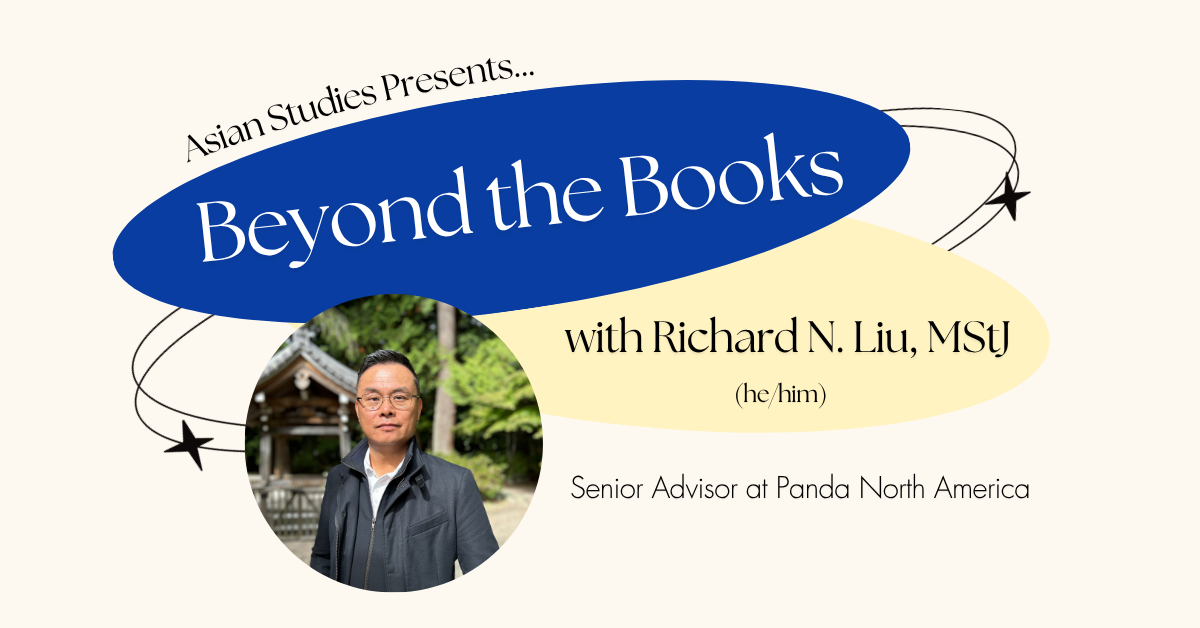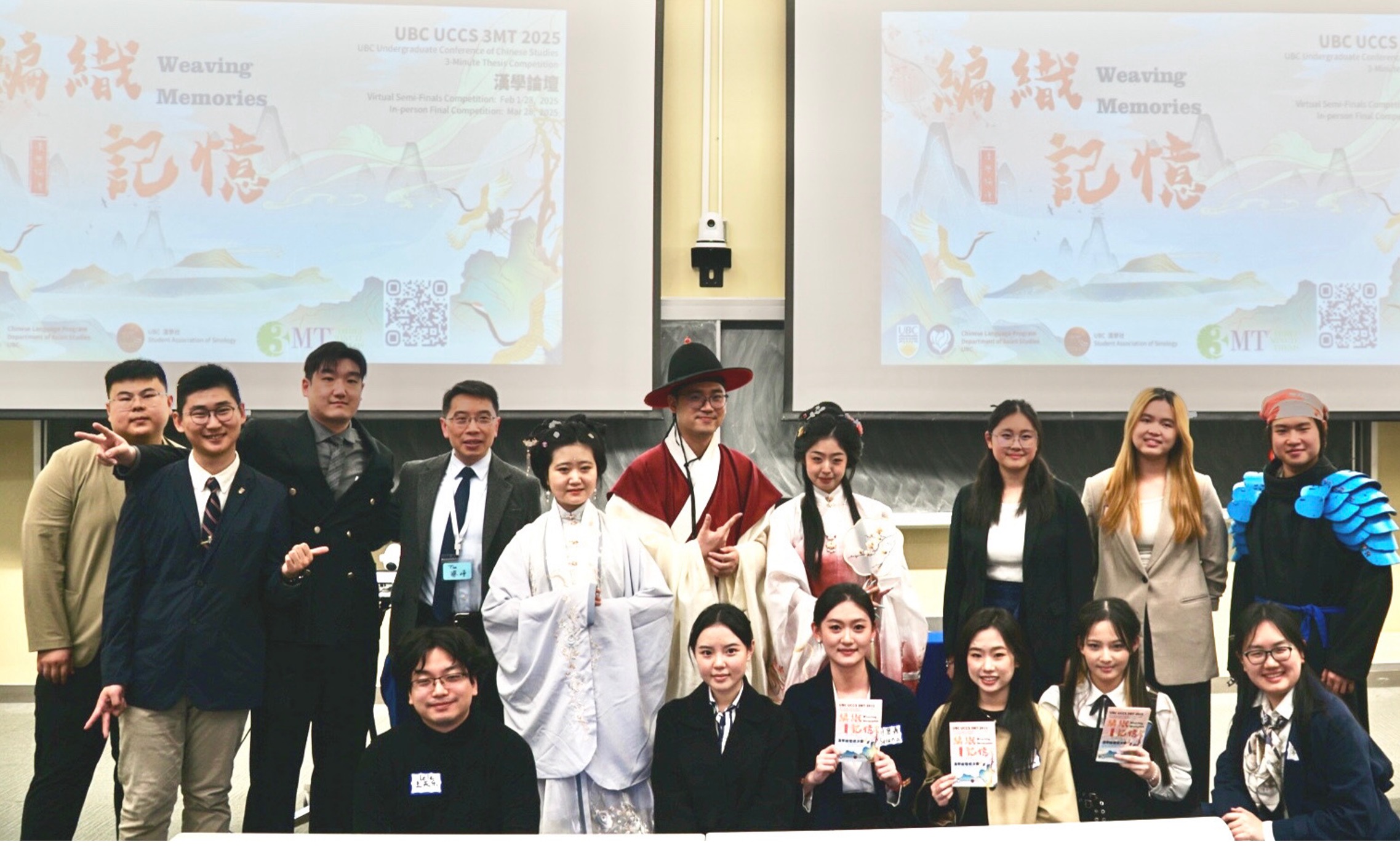Interested in what you can do with a degree in Asian Studies? In our Alumni Spotlight Interview Series, we ask our alumni about their career paths, how they became interested in Asian Studies and for any advice they would give to current students. This Interview features Koichi Ron Shimoda, UBC Asian Studies BA 1975. Koichi is currently a Financial Planner and Entrepreneur of Japanese History and Culture.
![Mr.-Shimoda-ING-highV01-Asian-Studies-Feb252013-225x300[1]](https://asia.ubc.ca/wp-content/uploads/sites/18/2013/02/Mr.-Shimoda-ING-highV01-Asian-Studies-Feb252013-225x3001.jpg)
![Mr.-Shimoda-ING-highV01-Asian-Studies-Feb252013-225x300[1]](https://asia.ubc.ca/wp-content/uploads/sites/18/2013/02/Mr.-Shimoda-ING-highV01-Asian-Studies-Feb252013-225x3001.jpg)
Mr. Shimoda is a 3rd Generation, Foreign Born, Japanese Canadian (Sansei). Born in New Denver, B.C., and raised in Vancouver, he graduated Asian Studies in 1975. He is a bilingual and multicultural executive who has extensive and in-depth experience and expertise in driving business, restructuring and start-ups in Japan and Canada
Could you go into some detail about your career path until now?
Summary
i. Starting in 1986, Mr. Shimoda proved himself to be a leader in the financial services industry at Lehman Brothers and Drexel Burnham Lambert. More recently, Mr. Shimoda, as Representative Director and General Manager at Right Management Japan from 2009 to 2011, provided outplacement services and HR consulting solutions. The HR consulting solutions focused on making organizations better able to compete in a global market, implementing a proprietary Global HR Platform, and recruiting, developing and retaining the proper talent. He is considered a thought leader in Ageing, Globalization, Inclusivity, Pensions and Talent Mismatch.
ii. Mr. Shimoda, as the Senior Managing Director and Chief Marketing Officer of ING Life Insurance and Chief Executive Officer of ING/Principal Pensions, developed and sold corporate Defined Contribution pension plans, individual pension products (i.e. annuities) and financial planning in Japan from 2000 to 2005. This included the recruiting and training of Tied Life Design Agents, Independent Agents and pension plan advisers and also implemented the underlying proprietary recordkeeping and supporting business processes and systems. During his time from 2006 to 2009 with Accenture Japan as the Business Development Director Financial Services, he sold customized Business Processing Outsourcing focused on Insurance organisations and annuities.
Specific Roles in Chronological Order:
-
- Manning Member of Canadian Pavilion EXPO’75 Okinawa Japan
- Peat Marwick Mitchell Vancouver BC and New York, New York
- Drexel Burnham Lambert & Company Asia Pacific Corporate Vice President and CFO
- Manufacturers Hanover Trust & Banking Limited Tokyo Japan Corporate Vice President, Senior Financial Officer and Deputy Branch Manager
- Lehman Brothers a Division of American Express Asia Pacific Chief Representative in Japan, Tokyo Branch Manager and Managing Director Asia Pacific
- C.M. Oliver & Company Limited Vancouver BC Senior Vice President and Corporate Secretary
- Equinox Investor Services Limited Vancouver BC Director of Business Development and Compliance in Western Canada
- ING Life Insurance Company Japan Senior Managing Director and Chief Marketing Officer
- ING/Principal Pension Company Limited Tokyo Japan Representative Director and Chief Executive Officer
- Accenture Japan Limited Director of Business Development
- Right Management Japan Limited Representative Director and General Manager
How did you get your first job after graduating?
1. Manning member of the Canadian Pavilion EXPO’75 Man and the Sea Okinawa Japan
-
- Professor Howes put me forward as a candidate to be interviewed by John Powles (Pavilion Manager) after graduating from UBC Asian Studies in 1975.
2. Peat Marwick, Mitchell & Company
-
- Applied to Peat Marwick, Mitchell & Company Vancouver office upon graduation in 1980. I was accepted to participate in their annual interview process to hire entry-level accountants that included several one to one interviews with key members and partners of the office including a lunch. I was offered a position 2 weeks later and I accepted.
3. Drexel Burnham Lambert Inc.
-
- I applied to an opportunity in the Wall Street Journal. I was contacted to schedule an interview by a Human Resource department recruiter. I had 4 more interviews with the Chief Financial Officer and 3 key members in the New York Head Office Accounting Finance Department. I was offered a role as a member of the team being sent to restructure and mitigate the problems of the Tokyo, Hong Kong and Singapore offices.
How has an Asian Studies degree helped you in your endeavors?
- It gave me the ability to better perceive the whole picture and to see the flow of a process. For example similar to looking at an ink monochrome painting and intuitively seeing the whole picture from a few strokes of black ink on rice paper.
- It prepared me for roles and responsibilities in global organizations by giving me the proper perspective to thrive and lead in a multicultural environment where there are more than one way of analysis, communicating and addressing any activity, event or issue.
- It has been a vital part of the value I bring to the role and responsibilities, for example:
-
- it was critical to my role as a manning member of the Canadian Pavilion EXPO’75 enabling me to communicate with guests and staff manning other national pavilions.
- Peat Marwick Mitchell had the largest practice providing professional services to Japanese organizations in North America. Therefore my bilingual and multicultural experiences were critical to my role and to the value that I brought to Peat Marwick Mitchell and clients.
- it was critical to success at Drexel Burnham Lambert Inc. to be able to communicate with local personnel by understanding their culture and how it impacted their perceptions and their underlying methods and processes.
Are there any opportunities in your field?
Yes there are opportunities as the Financial Service Industry is a global business. Asia Pacific is a key region in Financial Services. For example, Japan has about 2% of the world population but 20% of the world cash.
What are the pros and cons of working in it?
Financial Services Industry
Pros
-
-
-
- Critical business as it provides the financing (cash) necessary for the proper functioning and growth of organizations along with the opportunity for investment.
- Stimulating and challenging environment
-
-
Cons
-
-
-
- Volatile
- Work load at times 24/7
- Speed to market
- Demanding and at times a harsh working environment.
- One of the most highly regulated industries
-
-
Professional Services
Pros
-
-
-
- Breadth of experience and expertise
- Stimulating and challenging environment
- Ability to provide expertise and experience to assist organizations and individuals achieve their objectives
-
-
Cons
-
-
-
- Demanding
- Can require additional education either for a professional degree or graduate school
- Can be pigeon holed in one specialization
- Work load at times 24/7
-
-
What can students and/or recent graduates do to get a foot in your industry?
Investigate institutions or groups or activities that interest you in the financial services industry. Look for potential opportunities, something you are passionate about and/or a role where you can add value. For example: if you are passionate about raising the level of women entrepreneurs in developing countries then working at an institution providing micro-financing could be a fit. You can focus on finding a financial institution or organization that is driving this business in Asia Pacific.
What can students do, while still in university, to set them apart?
Be active and be involved in selected activities or groups they will give you the opportunity to expand your network and broaden you experiences. For example, initiate or be active in an organization or club focused on what you are passionate about such as: Animal Advocacy or Micro-Financing or Inclusivity (for example how Ageing will impact the demographics of an organization).
In your field what does a typical entry-level position entail?
-
- Data entry and analysis
- Review and investigation of previous projects, solutions, products
- Administrative support of projects and activities of your senior colleagues.
- Finding documents, creating documentation and ensuring proper and timely flow of documents.
- Watching, listening and learning from senior colleagues
- On the job training and education
- Working in teams under the supervision of more experienced colleagues while being assigned the more basic work
Where can they go to network?
I would suggest either the Vancouver Board of Trade or Executive Search persons.Find and endeavor to contact an executive service person in your desired field of interest and/or geographical region by investigating their web sites.Send them an email to introduce yourself and that you are interested in opportunities and why you are a fit. Do no give up if you do not get an immediate response. Sustain your effort. Use LinkedIn, join groups, request to connect with appropriate members and sustain your effort. Also, be active in your hobbies or organizations like your church, community centre or sport teams. The more people you meet or work with the more opportunity there is to network.
Do you have any other advice that you would like to impart to students and/or recent graduates?
Look to expand your search for opportunities. Vancouver is not a global center in the financial services industry. I suggest that you should consider looking for opportunities at a global or regional center such as New York, London, Frankfurt, Tokyo, Hong Kong or Singapore. Global centers will provide more opportunities and broader exposure to projects, products and solutions for deeper experiences and expertise. Take a risk! Look for the opportunity and/or environment to compete so you can hone your skills, gain experience and broaden your network.


